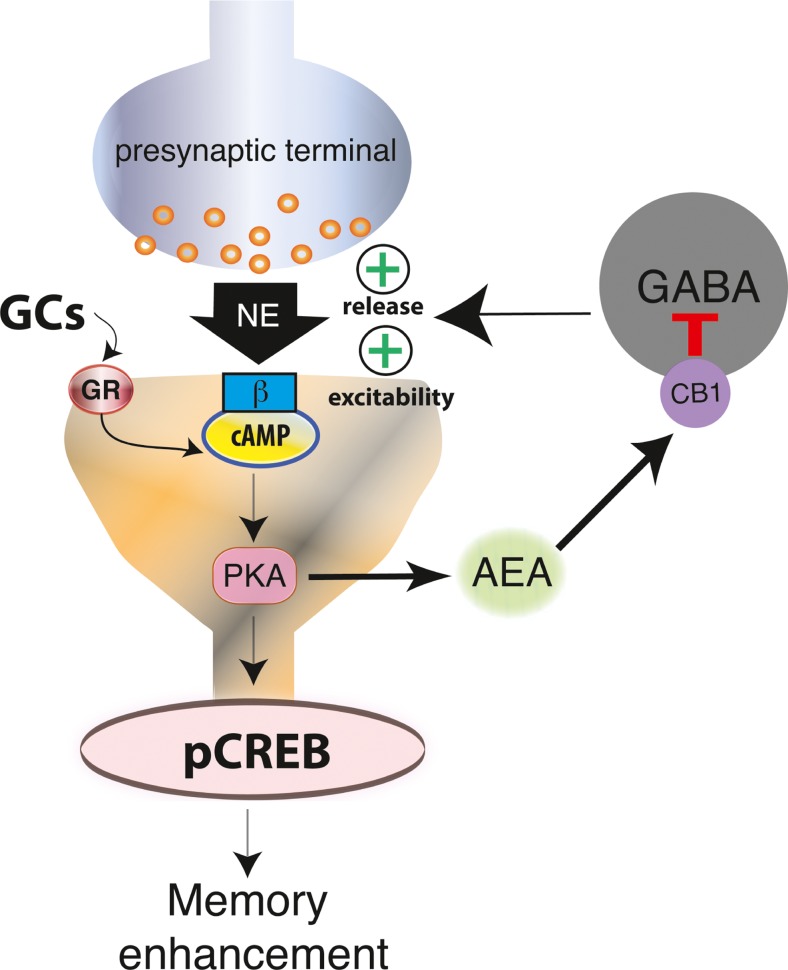Fig. 2.
Role of the endocannabinoid system in regulating glucocorticoid effects on memory consolidation. Glucocorticoids, released during emotionally arousing situations, bind to a membrane-bound GR, and activate the intracellular cAMP/PKA signaling cascade. This triggers the release of endocannabinoids, particularly anandamide (AEA). Anandamide then activates CB1 receptors on GABAergic interneurons and thereby inhibits GABA release. This subsequently disinhibits norepinephrine (NE) release and increases the excitability of pyramidal neurons within the basolateral amygdala. This overall increases the sensitivity of basolateral amygdala neurons to the effects of norepinephrine and results in an increased activation of the cAMP (cyclic adenosine monophosphate) / PKA (protein kinase A) pathway and phosphorylation of the transcription factor CREB (cAMP response-element binding) protein. These stress hormone effects in the basolateral amygdala are required for enhancement of memory for emotionally arousing experiences by influencing information storage processes in other brain regions. Adapted from Atsak et al., Neuropsychopharmacology, 2015

